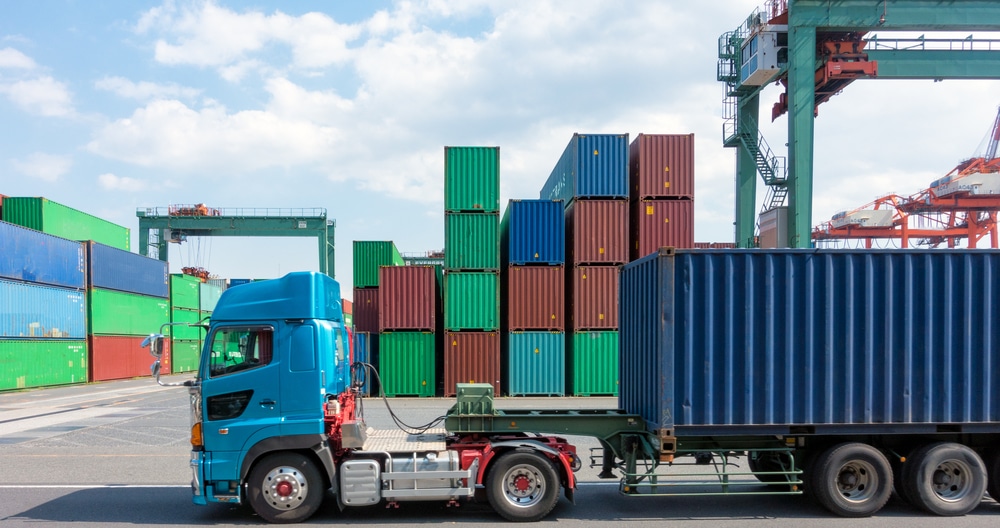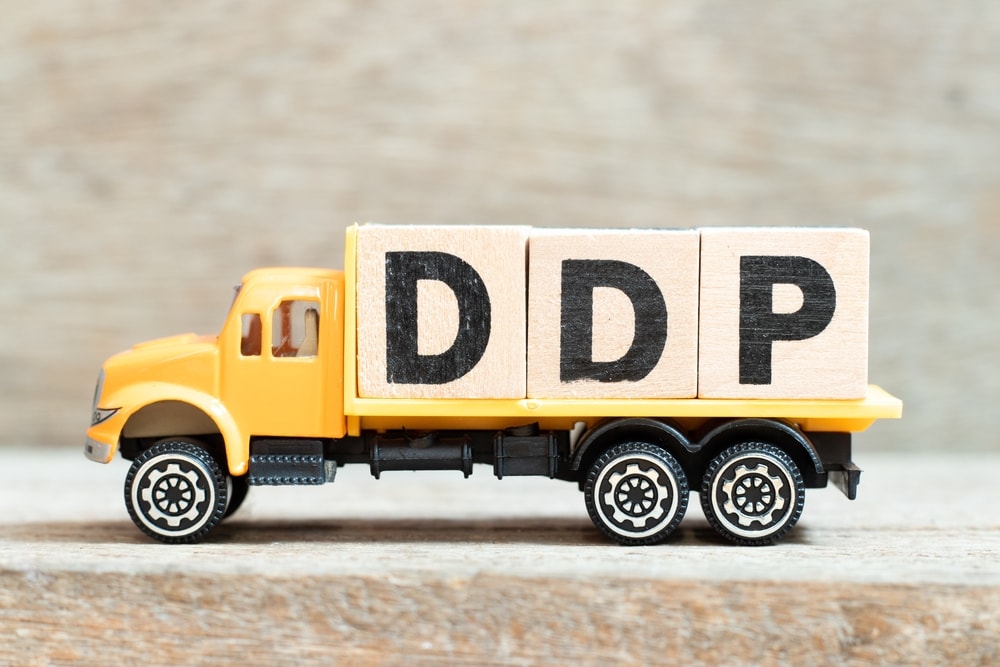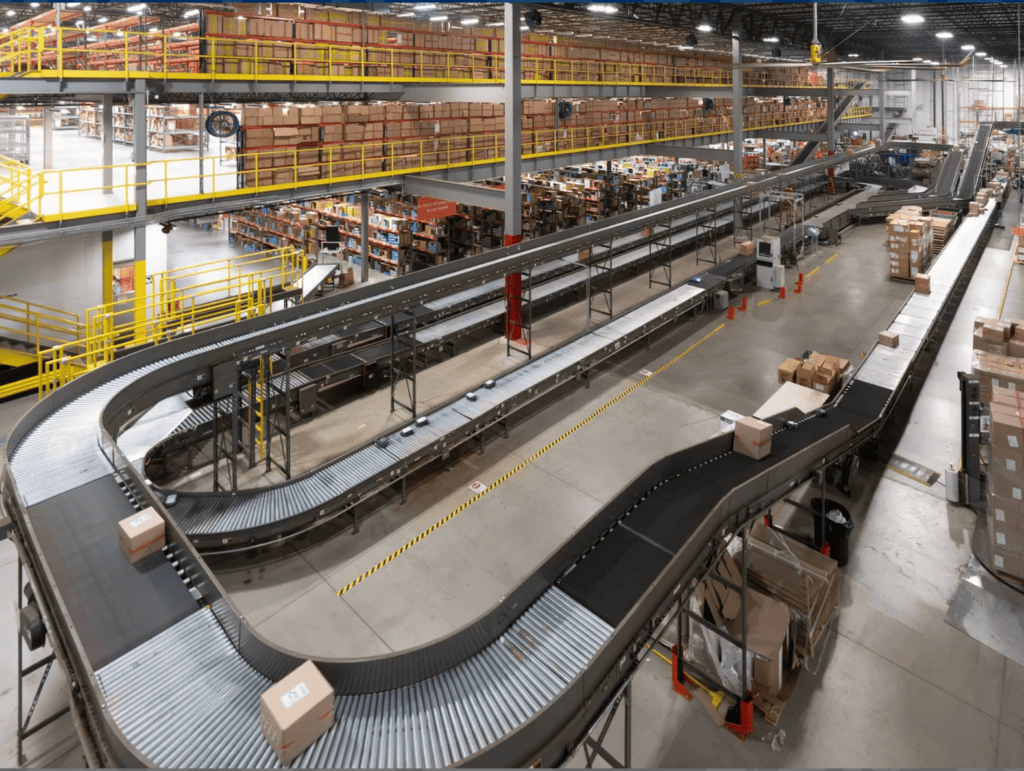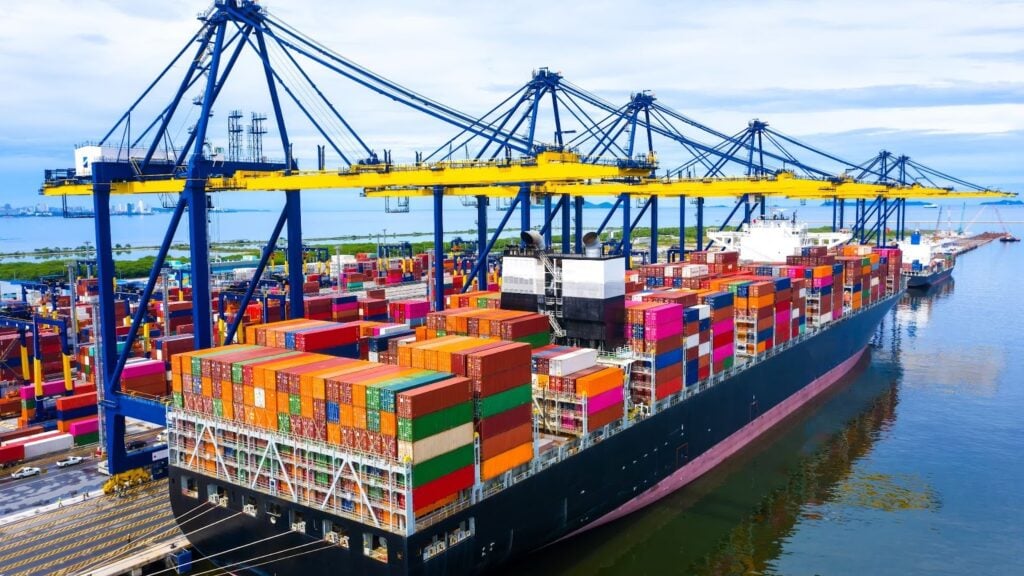Articles
Knowledge Center

Clean Bill Of Lading: Definition And Importance
A clean bill of lading is essential in international trade, guaranteeing that goods are shipped in perfect condition. It serves as a contract between the shipper, carrier, and receiver and a vital assurance of the shipment’s integrity. This article examines the critical role and definition of a clean bill of lading, highlighting its significance in […]
Read More
Outsourced Fulfillment: Definition, Advantages, and Disadvantages
When considering outsourced fulfillment, carefully assess your business’s growth stage, seasonal demands, expansion plans, cost-saving goals, focus areas, and technological needs.
Read More
Warehouse Vs. Factory: Purposes and Types of Each
Warehouses and factories, each integral to supply chains and manufacturing, serve distinct yet complementary functions. To optimize logistics, warehouses focus on efficient storage and distribution centers, often situated near key transport routes.
Read More
Bill of Lading (BOL): Definition, Example, and Importance
The Bill of Lading (BOL), derived from the old English word hladan (but sometimes mistakenly called a bill of laden or bill of landing), is a vital document in the logistics and transportation sector, serving as a legally binding contract of carriage and a detailed record of goods in transit. It is governed by strict […]
Read More
Drayage vs Cartage: Key Differences
Commercial shipping relies heavily on two essential methods for moving freight: drayage and cartage services. Each plays a distinct role in guiding goods to their final destination, from a port to a nearby facility or across short distances within a city. Though they serve similar purposes, the differences between drayage vs cartage are significant, and […]
Read More
DDP vs. DAP: Definitions, Differences, and Key Considerations
Definitions: DDP and DAP are both Incoterms, standardized terms used in international trade to define the responsibilities of buyers and sellers. DDP means that the seller is responsible for delivering the goods to the buyer’s premises, paying all duties and taxes, and assuming all risks until the goods are delivered. DAP means that the seller […]
Read More
What is a Liftgate? Definition, How It Works, and Benefits
Liftgates facilitate the loading and unloading of heavy materials from trucks using hydraulic power to bridge the gap between the ground and the cargo space of a truck, proving indispensable in various commercial settings.
Read More
Warehouse Management: Meaning, Advantages, And Systems
Warehouse management is essential for businesses, ensuring compliance, efficiency, and accurate inventory management. Its success requires industry knowledge and strategic resource management. Explore further for key insights into warehouse management. What Is Warehouse Management? In supply chain operations, warehouse management refers to the comprehensive process of supervising and controlling all aspects of a warehouse’s performance, […]
Read More
Dump Trucks: Industry, Types, and Applications
Dump trucks are multifaceted vehicles, with wide-ranging applications across the construction, mining, and transportation sectors. Understanding the industry and the benefits and applications associated with the various types of dump trucks is key for maximum efficiency of use.
Read More
Courier vs Freight: Which is Best for Your Shipping Needs?
The choice between freight and courier shipping depends on the specifics of your shipment, including size, weight, urgency, and cost considerations. Here is a closer look at the two transportation types as well as their benefits and drawbacks.
Read More
Tanker Trucks: Types, Capacity, and Safety
Tanker trucks play a crucial role in the transport industry, efficiently moving various liquids and gases, including fuel, chemicals, and water. These vehicles come in various sizes, from small to large capacities, ensuring the safe and effective delivery of essential substances across distances.
Read More
What Is Pick Pack and Ship? Benefits, Challenges, and Tips
In today’s fast-paced world of e-commerce, businesses strive to streamline their operations to provide the best customer service while maintaining profitability. One significant aspect of this efficiency drive is a procedure known as ‘pick pack and ship.’ It is a crucial aspect of the supply chain and fulfillment process that can directly impact a company’s […]
Read More
Channel Strategy vs. Logistics Management: Why They Matter and Their Key Differences
Channel strategy vs logistics management––here is everything you need to know. Understanding the differences and correlations between channel strategy and logistics management is paramount in the vast realm of the shipping, logistics, and supply chain industry. These concepts dictate how products move from manufacturers to consumers and influence the efficiency and profitability of the businesses […]
Read More
Expedited Shipping vs Standard: What’s the Difference?
Understanding the differences is crucial for making informed decisions that align with your shipping needs. The right choice depends on factors like delivery urgency, budget constraints, and the nature of the items being shipped.
Read More
Received for Shipment: Definition, How It Works, and Importance
Understanding the concept of ‘Received for Shipment’ is important in the shipping industry. This notation indicates that the carrier has received the cargo at the port facility for loading onto a specific vessel or voyage.
Read More
What Is Warehousing? Definition, Types, and Key Features
With different types of warehouses, such as private, public, and bonded warehouses available, businesses have choices to select a suitable warehouse based on their needs. Important elements to consider include locations, the technology available, costs per SKU, or additional features.
Read More
Channel Strategy: Definition, Types, and Tips
Businesses can significantly optimize the customer journey for better retention, meet business objectives, and ensure a successful marketing campaign—all by optimizing various marketing channels.
Read More
Pharmaceutical Warehousing: Definition, Handling Standards, and Supply Chain Rules
Pharmaceutical warehouses are specialized storage facilities that safely store pharmaceutical products, including medications, vaccines, and other health-related items.
Read More
Jumbo Trailer Trucks: Definition, Features, and Role in the Automotive Industry
A jumbo trailer truck stands out in the automotive industry due to its distinctive design and capacity to handle a much larger load volume than regular trucks.
Read MoreBackward Integration: Definition, Implementation Process, and Competitive Advantages
In a competitive business world where efficiency and dominance are paramount, backward integration emerges as a strategic linchpin for companies aiming to fortify their market position. This method involves businesses taking command of their supply chain, particularly by securing the production of raw materials. This strategic move elevates profit margins and solidifies a competitive edge […]
Read More